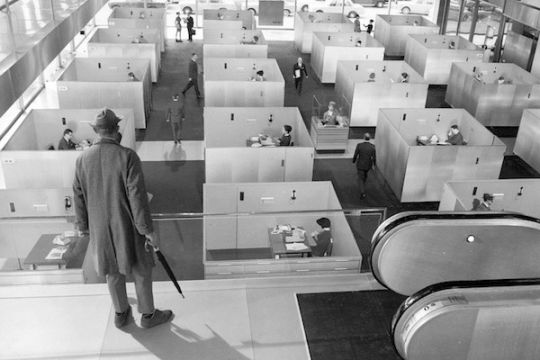Synopsis
Playtime is a surreal, comic vision of mankind's battle against the overwhelming depersonalisation of modern life.
Tati stars as the hapless Hulot, ambling through the massive metropolis specially constructed for the film.
Playtime was his most ambitious work and is regarded by many as his masterpiece. Three years in the making, the film involved the construction, on the southeast outskirts of Paris, of a vast, futuristic set covering six acres – dubbed
Tativille by the press, and much visited by tourists.
Tati gently pokes fun at modern architecture, package tourism, and the self-defeating rituals of impersonal bureaucracy. He shows fascination with people's choreographed movements as they negotiate the modernist labyrinth, revealing unlooked-for lyricism within the most sterile of surroundings. In the film's second half, his camera watches with evident delight as a pretentious, newly opened restaurant gradually disintegrates, and a small informal bistro magically creates itself out of the shattered elements.
Playtime was ahead of its time in its radical approach. There are virtually no plot-lines and no invi
tation to identify with the characters. Instead, the film is multi-layered with sight and sound gags. Jokes unfold in various parts of the frame simultaneously and the soundtrack – a meticulously composed cacophony of footsteps, gibberish and lounge music – only adds to the absurdity.

